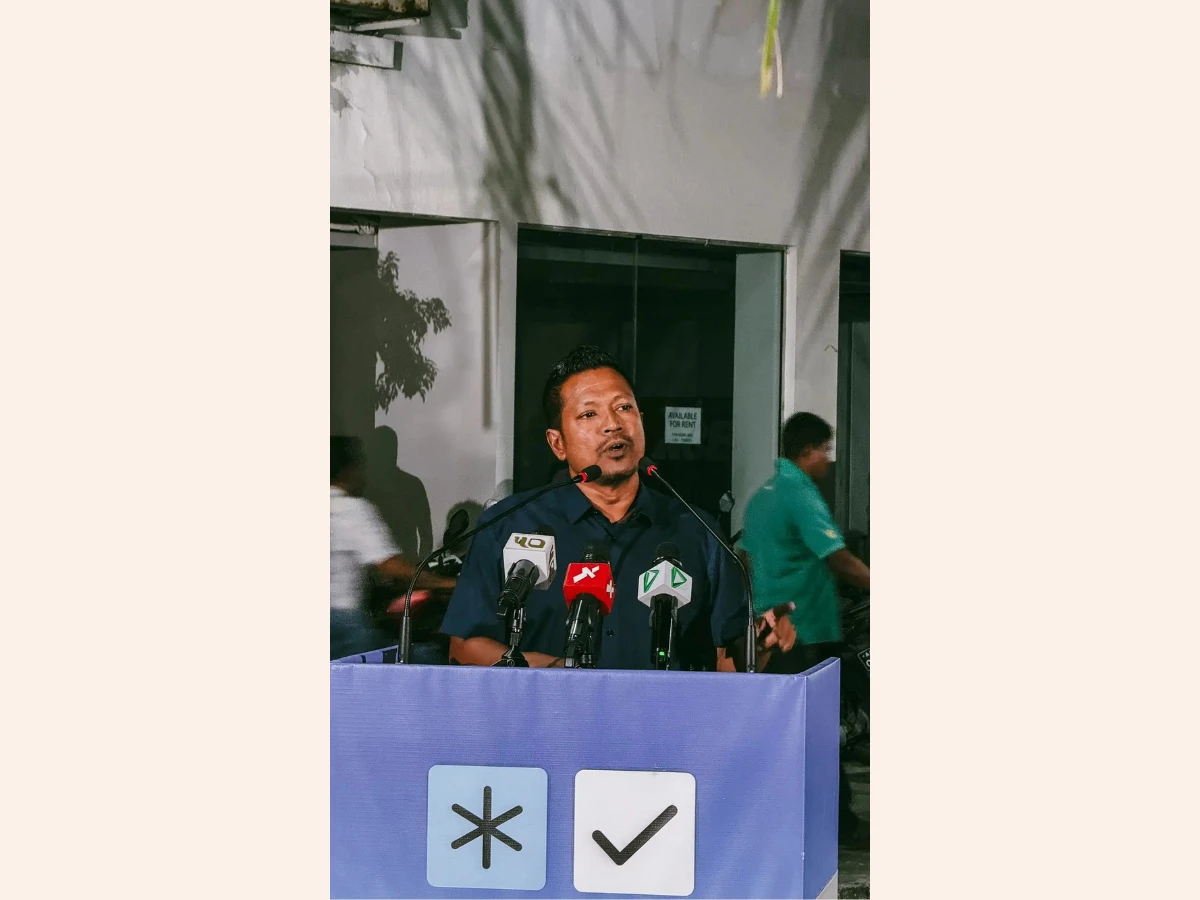
Constitution changed because of no-confidence vote, Imthiyaz says
The amendment was introduced to address situations where members switched allegiance after the election results.
Opposition Democrats spokesperson Imthiyaz Fahmy on Wednesday alleged that recent amendments to the Maldives constitution were made to prevent a no-confidence vote against President Mohamed Muizzu in parliament.
Speaking at a rally held by the Democrats at Bondibaiy Park, Imthiyaz stated that the amendment effectively removes the ability to table a no-confidence motion against the president. He criticised the move, claiming it undermines democratic principles.
"Look at the change in the constitution. I don't know if the president is afraid of a no-confidence vote. For example, PNC members sometimes express dissatisfaction," Imthiyaz said.
He further claimed that under the amendment, members who sign a no-confidence motion could face expulsion from their political party and lose their parliamentary seats. This, he argued, has concentrated power in the hands of the President, limiting parliamentary oversight.
Imthiyaz highlighted that the constitution originally provided a mechanism for a no-confidence motion against the President as a means of accountability.
"This amendment breaks that provision," he said. "This is not acceptable to the Democrats or to any citizen."
He emphasised that power originates from the people and must remain with the people, as enshrined in the Constitution. He warned that his party would consider public demonstrations to advocate for restoring constitutional balance.
On October 20, the constitutional amendment was passed in a single day. Former MP and lawyer Ali Hussain has since filed a petition in the Supreme Court seeking to overturn the amendment. Both the opposition Maldivian Democratic Party (MDP) and the Democrats have joined the legal challenge.
The amendment specifies four circumstances under which a member of parliament can lose their seat:
-
If a member elected on a party ticket withdraws from their political party.
-
If a member joins a party other than the one they represented during the election.
-
If a member is expelled from their party under lawful provisions.
-
If an independent member joins a political party during their term in parliament.
The amendment was introduced to address situations where members switched allegiance after the election results. Several MPs who were elected as independents for the 20th parliament joined the PNC before the parliamentary session began.
The amendment ensures such members do not lose their seats due to party affiliation changes before the session's commencement.




